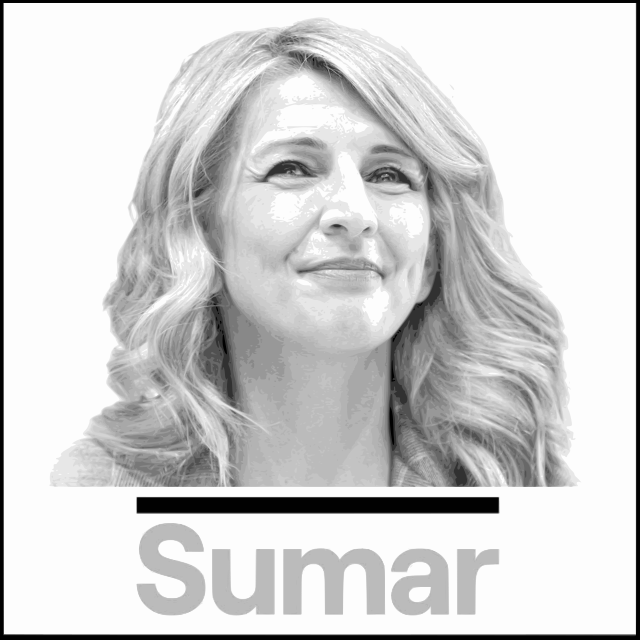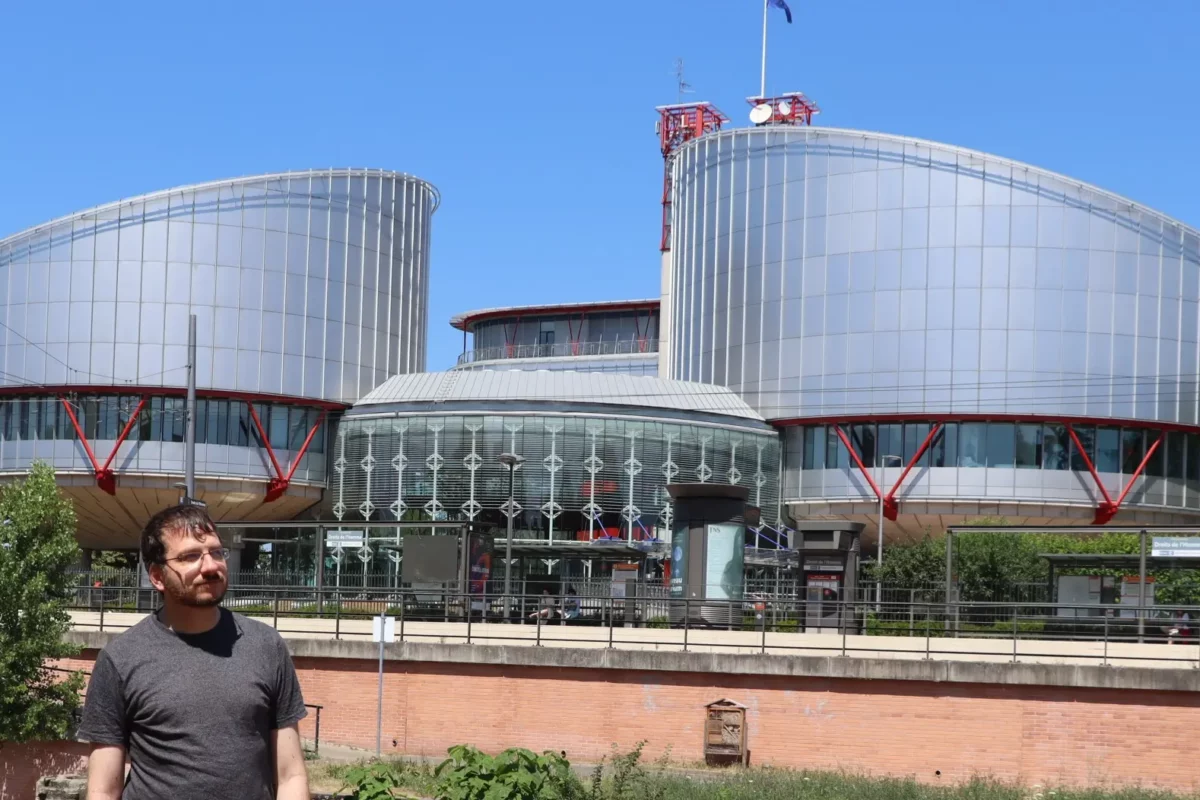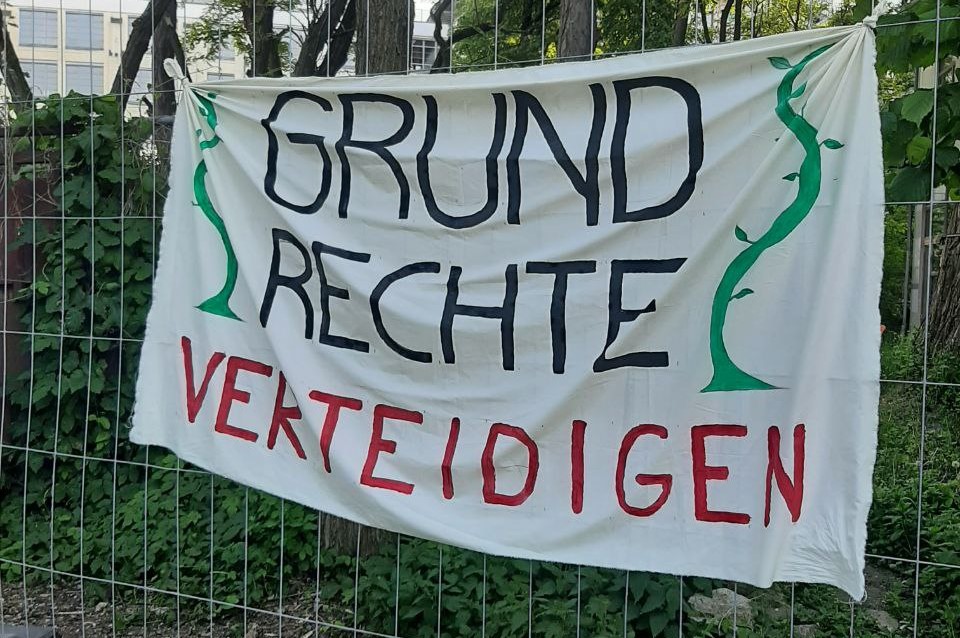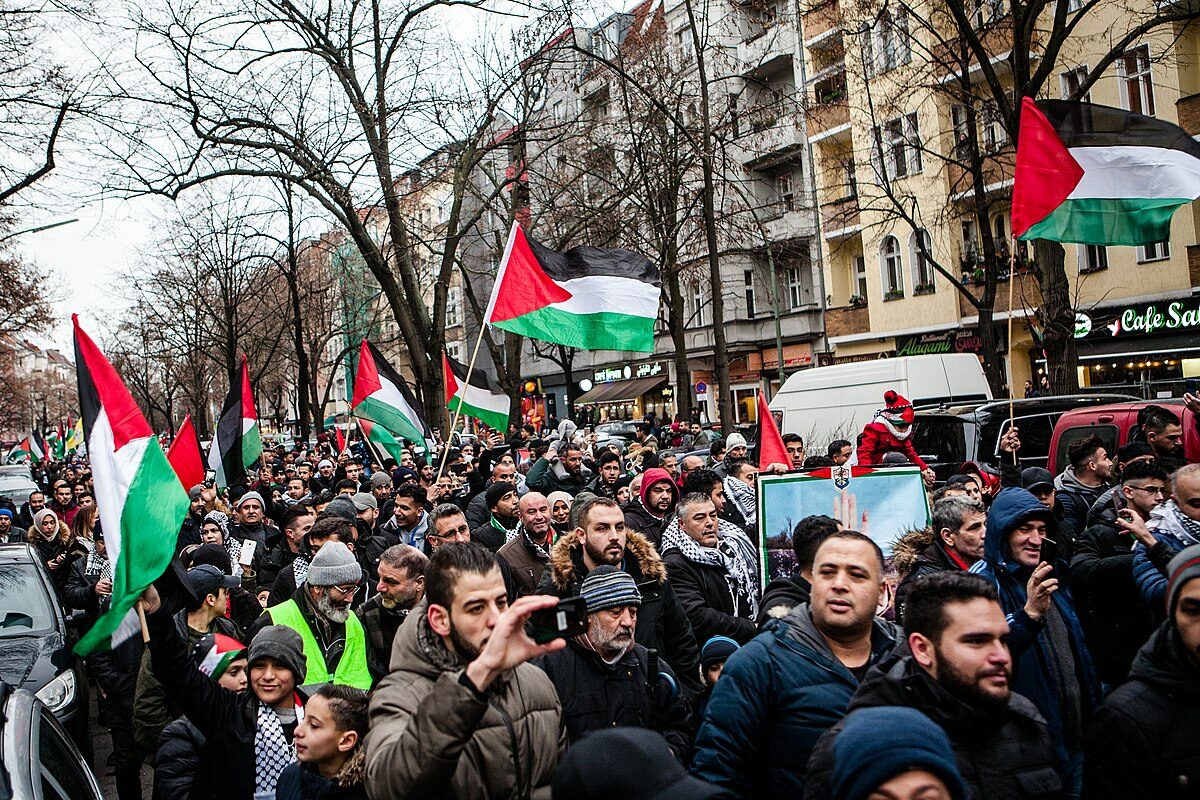The Main Problem is Silence
I have been active in the Palestine solidarity movement in Germany for over 25 years. I started by attending public meetings with my friend Samieh, a Palestinian from Yafa.
Just about every single meeting followed the same rough script. First, the speaker acknowledged the difficult conditions endured by Palestinians. Then the discussion was opened up to the public, where the second or third contributor said: “but of course Germans can’t discuss the Middle East”. This was the point at which Samieh’s and my hands shot up.
When called to speak, we would ask if we could say something, as we weren’t German. Usually our contributions won applause. It slowly dawned on me that it wasn’t that the German Left didn’t want to hear about Palestine, but that they seriously believed that if Germans were to express an opinion, this would be the first step on a path towards invading Poland and building Concentration Camps.
The result was a prevailing opinion that “it’s too difficult to talk about Palestine”, “everything is complicated”, or “there must be blame on both sides”. This has resulted in less discussion and understanding about what is happening to the Palestinians.
People who first encounter the German Left’s lack of solidarity with Palestinians sometimes believe that most German Leftists are pro-Israel or “Antideutsch”. I don’t believe this to be the case. Although some German Leftists are aggressively pro-Israel, this is a very localised phenomenon. Outside some areas of academia and local government, the dominant attitude to Palestine is not “we love Israel” rather “this is too complicated for us to have an opinion on it at all.”
If everyone is shouting, it is difficult to hear what anyone is saying. The German Left’s silence on Palestine means that often the only voices that you hear are those of the Israel fans. It is not that they are powerful or influential, just that no-one else is saying anything.
However, something is starting to change. In this article, I want to show how and why the debate on Palestine in Germany has shifted in the last 10 years, and why – although current support for Palestine appears to be derisory – we do have some cause for hope.
Bombing of Gaza in 2014
In 2014, Israel carried out a massive bombing campaign on Gaza. This was by no means the first attack, but this time it was more blatant than usual, with regular news reports of civilians losing their homes and lives. Many found the dominant narrative from the media and politicians – that Palestinians were responsible for their own destruction – to be implausible at the least.
A number of demonstrations were organised in Berlin by Islamists and Turkish nationalists. More importantly, 200 Israelis and German Jews marched through Kreuzberg behind the slogan “Deutsche Linke Wach Auf!” (German Left Wake Up!). The demo demanded that a Left which called itself anti-colonialist could no longer ignore what was happening to the Palestinians.
These Israelis came together with Palestinians and German Leftists to organise a demonstration which would bring 1,500 people onto the streets. This may seem tiny – especially compared to the 150,000 who were marching through London at the same time – but it was the largest left wing demo for Palestine in Germany that I had ever experienced.
The demo was backed by some local LINKE groups, but the most enthusiastic support came from young people. While the German Left was still tying itself in knots with abstract arguments about German responsibility or the writings of Moshe Postone, kids – many of whom went to school with Palestinians – saw the attacks on the news and just wanted to know what they could do to help.
In the years following 2014, I organised several tours through Germany with Saeed Amireh, a teenager from Ni’lin in the West Bank. Saeed’s meetings were always well-attended, but the liveliest and most effective were always those in schools and youth centres.
2020 Black Lives Matter
In 2020, Berlin experienced its first significant post-Covid demonstration. Following the police murder of George Floyd in the US, 15,000 people protested in Alexanderplatz. I went down to the demo from the working class district of Wedding. The trains were full of young Black girls with home-made placards, many apparently attending their first ever demo.
This was not just the biggest left-wing mobilisation in over a year. The character of the demo was different to many organised by the Old Left. The organisers were young and Black, and in tune with Black Lives Matter’s (BLM) solid support for Palestine. A typical article of the time was titled How Black Lives Matter helped resurrect a politics of solidarity for Palestine.
The perceived trauma which has hindered the German Left from showing solidarity with Palestine was always stronger amongst the white Left and some academics. A vibrant, inspirational movement led by young Black people opened up new opportunities to discuss occupation and settler colonialism in the Middle East.
The Role of Palästina Spricht
If 2014 represented a mild shift in German solidarity for Palestine, 2021 was a massive leap forwards. This was partly because of a growing international movement spearheaded by groups like BLM, but was also the result of a significant change in Palestinian leadership in Germany.
The new leadership in Germany reflected changes in Palestine itself. In 1993, the PLO/Fatah signed the Oslo accord with Israel, condemning Palestinians to live in Bantustans for the foreseeable future. Disappointment in Fatah led to Hamas winning the 2006 Palestinian legislative elections but their incendiary rhetoric was not matched by social reform.
As younger activists became disillusioned with official politics, new independent groups like Gaza Youth Break Out emerged. In Germany, a new generation, which had its roots in the international anti-capitalist movement, started to assert itself within organisations like Palästina Spricht.
Palästina Spricht realised that Palestinians are so marginalised in German society, that the State and politicians can safely ignore their demonstrations. If the Palestinians were to win, they had to make inroads into “German” organisations. This meant winning an argument with the German Left that silence on Palestine was no longer an option.
One further change was happening, at least in Berlin. In 2011, 11.9% of Berliners did not have a German passport. Ten years later, this was over 20%. Increasingly, international activists were getting involved in German politics. On the Nakba Day demo in 2021, you could hear a multitude of languages – Arabic and Hebrew, of course, but also Russian, English, French. And, sometimes, even German.
It is hardly surprising that many Palestine solidarity meetings are now taking place in English. Of itself, this does not ensure that Germans will be drawn into a movement which doesn’t even have its discussions in German. But it has helped break down the prejudice that Palestine is only an issue for “hysterical Arabs” and created an opening to bring discussions about Palestine into the German Left.
The Bundestag Resolution (May 2019) and its Consequences
Not everything was going our way. In 2019, the Bundestag, the German parliament, passed a resolution which equated BDS with antisemitism. Despite some reports to the contrary, die LINKE did not vote for this resolution, although they did put forward their own resolution which was nearly as bad.
The Bundestag resolution had no legal value. This was possibly intentional, as a non-legal resolution cannot easily be challenged in court (although the Bundestag 3 for Palestine are currently attempting to do just this). Its main intention was to further intimidate people who already felt insecure about raising the issue of Palestine.
In the wake of the Bundestag resolution, pro-Palestinian speakers were cancelled, academics were denied contracts, and rooms were made unavailable. It did not matter whether the speakers were Palestinian, German, or Israeli. The vaguest association with the BDS movement would be enough to make institutions feel that allowing meetings to take place would not be worth the aggravation.
It was not just pro-Israel institutions that cancelled meetings on Palestine. An anti-colonial cultural centre in Berlin cancelled 2 meetings, one of which had the title: “Are we allowed to discuss Palestine in Germany?” This followed a visit by representatives of Berlin’s city council who told the centre that if the meetings were to take place, it would lose all future funding.
Journalists were also intimidated. Nemi al-Hassan, a Palestinian journalist, was denied a job that she had been offered presenting a science programme. Seven journalists at Deutsche Welle, the “German BBC” were fired amid accusations of antisemitism. Their court cases are still running, as Deutsche Welle are now appealing the judges’ decisions that the sackings were unjustified.
2022-2023 Demonstration Bans
This rising solidarity combined with an increase of repression provide the context for recent demonstration bans. In 2022 – one year after the huge Nakba Day demo – Berlin’s police and politicians collaborated to ban all demonstrations around the Nakba anniversary. This was shortly after the election of Franziska Giffey as Berlin mayor, campaigning on a “Law and Order” platform.
Despite the ban, some people gathered at Hermannplatz – a popular square in Berlin’s “Arab district” of Neukölln, where they were kettled and arrested. Many were fined over €300, and the court cases are still running. A Palestinian friend contested her fine and won – but is still liable to pay over €800 legal fees.
The following year, all Palestinian demos were once more banned. This time, a rally by the Jewish Voice for Peace was allowed, only for attendees to be brutally attacked by the police. The press responded with the most dishonest reporting that I can ever remember.
All press coverage – with the exception of the Berlin news portal rbb – reported that Palestinians took over a Jewish rally, and shouted antisemitic slogans. The online edition of the Berliner Zeitung carried headlines about hatred against Jews – next to a photo of Adam Broomberg being led away by police. Adam is a Jewish photographer from South Africa.
The intensity of these attacks has meant that some Germans can no longer stay neutral. For years, it has been difficult to raise Palestine in my LINKE branch in Wedding, because “it is too difficult to have this discussion in Germany”. After the bans, Die LINKE Wedding published a statement which did not just condemn the bans, but also showed explicit solidarity with Palestinians.
We have seen similar expressions of support elsewhere, particularly from the environmental movement. Lützerath Lebt!, a popular campaign against energy company RWE, issued a statement of solidarity with the Nakba75 campaign, Fridays for Future Bremen supports Palästina Spricht, and BIPoC for Future, the FFF group for BIPOC people has regularly supported pro-Palestine actions.
It is not really surprising that organisations of mainly young activists who have not been subject to the stultifying discussions in the German Left have been quicker to show solidarity. As the German State shows the same repression against groups like the Letzte Generation as they do against Palestinians, many environmental activists are starting to see how the fight for Palestine is an intrinsic part of their fight too.
How Can We Win?
The demonstration bans and other attacks are part of a more general assault against anyone who opposes the neoliberal hegemony. This assault has many aspects – the criminalisation of environmental activists like the Letzte Generation, attacks on workers’ pay and conditions and aggressive policing of demonstrations. If Palestinian demonstrations are banned, other bans will follow. If Palestinian workers are sacked without resistance, this will make it easier for companies to attack the pay and conditions of other workers as well.
Unlike 10 years ago, there is now a solidarity movement in Germany which is led by the direct victims of repression. This movement remains a pole of attraction for people who are sickened by the German State’s support for occupation and repression in Palestine and want to do something about it.
The fact that a pole exists does not mean that people automatically flock towards it. The statement by die LINKE Wedding in support of Palestinians did not emerge from nowhere, but was the result of years of persistent arguments by socialists within the branch for Palestinian rights. Environmental activists – particularly those with migrant backgrounds – are experiencing first hand how the new climate of increased repression affects their right to demonstrate. This makes it easier for them to empathise with Palestine activists and to argue why Palestine matters to the environmental movement.
For several years, we have witnessed an inspirational international wave of support for Palestine. This has helped greatly, but the subjective factor remains important, particularly in Germany, where the tendency to keep silent is still the strongest. Palestine activists have a new audience, which is prepared to listen to arguments that they may have previously dismissed out of hand. We can win many of these people for the Palestine solidarity movement, but only if we are prepared to raise “difficult” questions about the inherently racist nature of Zionism, and the case for a single democratic state, and the need to consistently fight against settler colonialism in Israel.
This is a fight we can win, but we can only win if we stand up and fight.




